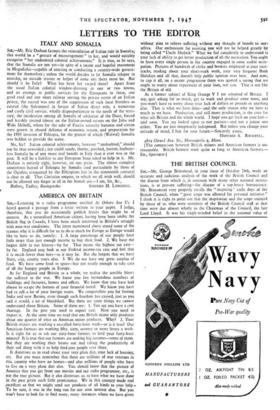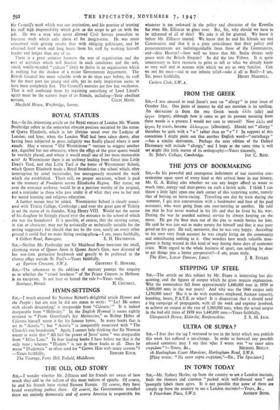THE BRITISH COUNCIL SIR, —Mr. George Brinsmead, in your issue of
October 24th, made an accurate and judicious analysis of the work of the British Council and the disease from which it, in common with many other national institu- tions, is at present suffering—the disease of a top-heavy bureaucracy. Mr. Brinsmead very properly recalls the " inspiring " early days of the British Council, when " great scope was allowed for personal initiative." I think it is right to point out that the inspiration and the scope enjoyed by those of us who were members of the British Council staff at that time were due almost wholly to the Chairman of the Council, the late Lord Lloyd. It was his single-minded belief in the national value of
the Council's work which was our inspiration, and his practice of trusting his staff with responsibility which gave us the scope to get on with the job. He was a man who never allowed Civil Service procedure to frustrate work which calls above all for imagination. He was more concerned with getting results than with obliging politicians, and he obtained hard work and long hours from his staff by working himself harder and longer than any of us.
There is a great contrast between the sort of organisation and the sort of activities which will flourish in such conditions and the soft, timid, woolly-minded "culture" likely to thrive in an organisation which is nothing but the shadow of a minor Government department. The British Council has more valuable work to do than ever before, its staff for the most part are young and able, yet its early inspiration seems to have been completely lost. The Council's enemies are few but vociferous. That it will confound them by regaining something of Lord Lloyd's spirit must be the earnest hope of its friends, including—Your obedient servant, COLIN MANN.
Mayfield House, Weybridge, Surrey.



































 Previous page
Previous page